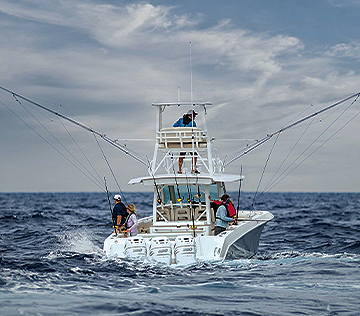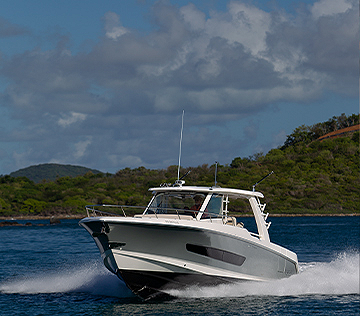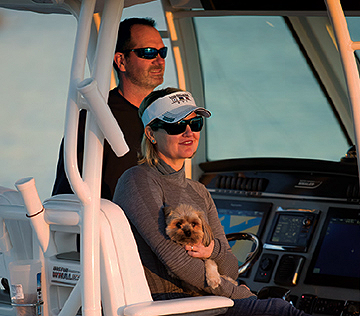
Pre-Launch Outboard Motor Maintenance
15-Step Pre-Launch Guide for Outboard Motors
As winter fades and boating season begins, it’s time to give your outboard motor the attention it needs for peak performance. Follow this step-by-step guide to get your boat engine in top shape for your on-water adventures ahead.
1. Start with a Visual Inspection
- Remove the Cowling: Lift off the engine cover to access internal components.
- Check for Pests: Look for nests or chewed wires, as rodents can cause serious damage during storage.
- Inspect Electrical Connections: Ensure all wires, including spark plug connections, are secure and corrosion-free.
- Examine Hoses and Belts: Look for cracks, wear, or deterioration, replacing any damaged parts.
2. Assess Timing and Alternator Belts (Four-Stroke Engines)
- Timing Belt: Inspect for fraying or excessive wear, as a failing belt can cause engine failure.
- Alternator Belt: Ensure proper tension and check for signs of deterioration. Adjust or replace if necessary.
3. Test the Steering System
- Steering Movement: Turn the wheel fully in both directions to confirm smooth motion without stiffness.
- Lubricate Joints: Apply marine grease to moving parts to prevent friction and wear.
- Hydraulic System Check: Look for leaks and bleed the system if needed.
4. Confirm Trim and Tilt Functionality
- Fluid Levels: Verify that hydraulic fluid is at the proper level.
- Operational Test: Engage the trim and tilt functions to ensure smooth movement.
- Leak Inspection: Address any signs of fluid leakage promptly.
5. Secure the Outboard Motor
- Mounting Check: Confirm the motor is firmly secured to the transom.
- Inspect the Transom: Look for cracks or structural weaknesses that could impact safety.
6. Evaluate Sacrificial Anodes
- Locate and Examine: Check all anodes for corrosion.
- Replace if Needed: Swap out any anodes that are more than 50% worn to maintain protection against galvanic corrosion.
7. Check the Propeller
- Remove and Inspect: Look for dents, pitting, or bends that could reduce efficiency.
- Clear Debris: Ensure fishing line or other materials aren’t wrapped around the prop shaft.
- Apply Grease: Coat the shaft with marine grease before reinstalling the propeller.
8. Replace the Water Pump Impeller
- Check Service Schedule: Refer to the manual for recommended replacement intervals.
- Perform Replacement: If due, install a new impeller to maintain proper cooling and prevent overheating.
9. Examine the Fuel System
- Inspect Fuel Lines: Look for cracks or stiffness and replace if necessary.
- Check Fuel Tanks: Ensure tanks are free from corrosion or contamination.
- Replace Fuel Filters: Install fresh filters to keep debris out of the engine.
10. Run the Engine
- Use Flushing Muffs: Connect to a water source to safely run the motor.
- Start Up and Observe: Look for a steady tell-tale water stream, ensuring proper cooling.
- Listen for Issues: Watch for vibrations, warning lights, or unusual noises.
11. Clean and Protect Your Motor
- Wash Exterior: Use marine cleaners to remove dirt and salt buildup.
- Apply Protective Wax: Shield painted surfaces from UV exposure and corrosion.
- Cover the Motor: A breathable cover helps prevent environmental damage when not in use.
12. Inspect Battery and Electrical Systems
- Battery Check: Ensure its fully charged and holds a charge effectively.
- Clean Terminals: Remove corrosion and apply a protective coating.
- Test Electronics: Verify that lights, gauges, and other accessories are functioning properly.
13. Review Safety Gear
- Life Jackets: Confirm all flotation devices are in good condition and easily accessible.
- Fire Extinguishers: Ensure they are fully charged and within the service date.
- Signaling Devices: Test horns, whistles, and visual distress signals.
14. Update Paperwork
- Registration: Verify that boat registration and decals are up to date.
- Insurance Coverage: Check that your policy is active and provides adequate protection.
- Logbook Updates: Record maintenance activities and any repairs completed.
15. Conduct a Shakedown Cruise
- Trial Run: Take a short trip to test all systems before longer voyages.
- Performance Check: Note engine response, steering ease, and overall handling.
- Address Issues Early: Fix any minor problems before they become major headaches.
Read more pre-launch tips in our spring commissioning guide and set yourself up for a trouble-free boating season. Regular maintenance not only prevents unexpected breakdowns but also ensures your outboard motor runs efficiently for years to come.
To decommission, learn about post-season boat engine maintenance, or if you need professional assistance, reach out to your local Boston Whaler dealership for a referral.



